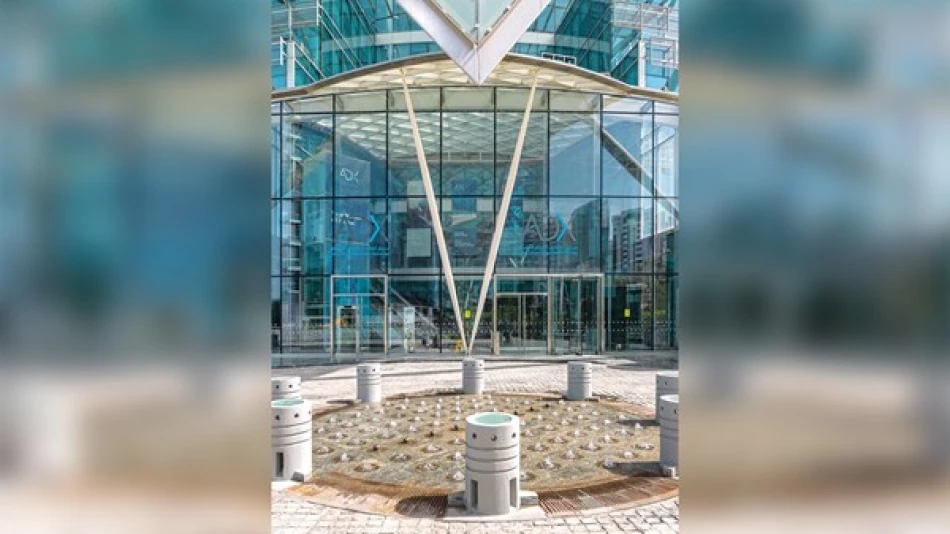
UAE Stocks Gain $2.8 Billion on Strong Start to the Week
UAE Stock Markets Hit Fresh Highs as Foreign Capital Flows Signal Growing Confidence
The UAE's equity markets delivered a strong start to the week, with combined gains of 10.53 billion dirhams ($2.87 billion) as both Abu Dhabi and Dubai exchanges pushed performance indices to new historical peaks. The rally, backed by sustained foreign investment inflows totaling 48.5 million dirhams in net purchases, underscores the UAE's growing appeal as a regional financial hub amid global economic uncertainty.
Market Performance Shows Broad-Based Strength
Abu Dhabi Securities Exchange led the charge with a market capitalization gain of 9.12 billion dirhams, while Dubai Financial Market added 1.4 billion dirhams. Total trading value reached 2.2 billion dirhams across 781.7 million shares through 38,323 transactions, indicating healthy liquidity and investor participation.
The broad-based nature of the rally suggests underlying economic strength rather than speculative momentum. In Abu Dhabi, 43 companies advanced against 33 decliners, while Dubai saw 25 gainers versus 24 losers—a balanced distribution that typically signals sustainable market trends.
Abu Dhabi: Energy Giants Drive Trading Activity
Abu Dhabi's main index climbed 0.21% to close at 10,362.16 points, with ADNOC Gas dominating trading activity at 221.53 million dirhams in value. The energy sector's prominence reflects the UAE's strategic positioning as global energy markets navigate geopolitical tensions and supply chain disruptions.
Modon Properties emerged as the second-most active stock with 217.17 million dirhams in trading, highlighting continued investor appetite for UAE real estate exposure. First Abu Dhabi Bank and Aldar Properties rounded out the top performers, demonstrating the market's reliance on established blue-chip names.
Dubai Market Benefits from Real Estate Momentum
Dubai's benchmark index gained 0.28% to 6,167.68 points, with Emaar Properties leading trading at 156.96 million dirhams. The real estate developer's strong performance aligns with Dubai's ongoing property boom, driven by expatriate inflows and government initiatives to attract international talent.
A notable block trade occurred in Gulf Navigation Holding, with 10 million shares changing hands at 5.99 dirhams per share for a total value of 59.9 million dirhams, suggesting institutional repositioning in the maritime sector.
Foreign Investment Patterns Signal Confidence
The sustained foreign buying across both markets represents a significant vote of confidence in the UAE's economic trajectory. Abu Dhabi attracted 39.3 million dirhams in net foreign purchases, while Dubai saw 9.16 million dirhams in net inflows.
This foreign interest contrasts sharply with many emerging markets that have experienced capital flight amid rising global interest rates and geopolitical tensions. The UAE's success in attracting international capital reflects its strategic positioning between East and West, robust regulatory framework, and diversification efforts beyond oil dependency.
Institutional Behavior Reveals Market Dynamics
Interestingly, financial institutions showed net selling behavior in both markets—14.42 million dirhams in Abu Dhabi and 76.68 million dirhams in Dubai. This pattern often indicates profit-taking by sophisticated investors or portfolio rebalancing, while retail and foreign investors drive momentum.
Such institutional selling during market highs can actually be viewed positively, as it suggests professional money managers are maintaining disciplined approaches to valuation, potentially creating a more sustainable foundation for future growth.
Regional Context and Global Implications
The UAE's market performance stands out in a region where many exchanges have struggled with volatility and capital outflows. Unlike Saudi Arabia's Tadawul, which has faced headwinds from oil price fluctuations, or Qatar's market, which remains relatively isolated, the UAE has successfully positioned itself as a diversified, internationally accessible market.
The continued march to historical highs also reflects the UAE's successful economic diversification strategy, with significant contributions from technology, tourism, logistics, and financial services sectors beyond traditional energy revenues.
Market Outlook and Investment Implications
With Abu Dhabi's market capitalization now exceeding 3.16 trillion dirhams and Dubai reaching 1.063 trillion dirhams, the UAE equity markets represent increasingly significant components of regional and emerging market portfolios.
For international investors, these developments suggest the UAE's transformation into a genuine financial center is gaining traction. The combination of regulatory improvements, tax advantages, and strategic geographic positioning continues to attract both individual and institutional capital from Europe, Asia, and North America.
The sustained foreign inflows, coupled with healthy trading volumes and broad-based participation, indicate that current price levels may be supported by fundamental improvements rather than speculative excess—a crucial distinction as global markets navigate uncertain terrain ahead.
Most Viewed News

 Layla Al Mansoori
Layla Al Mansoori






